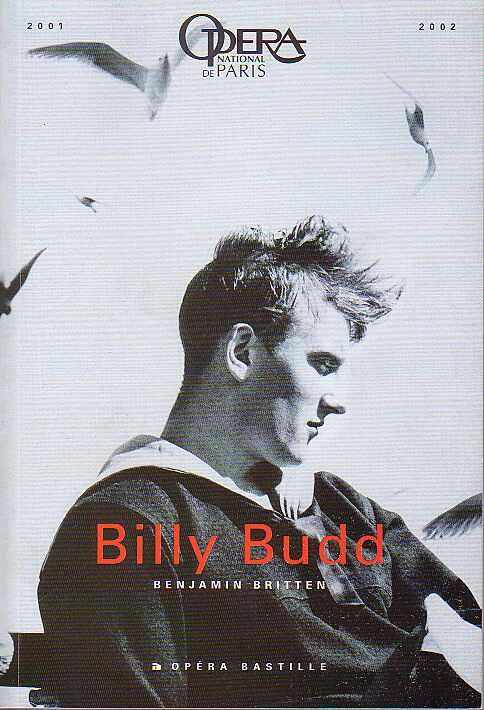The Opéra de Paris finally found its sea legs when they pulled this production from their closet and presented it with a seamless crew on board. With this 1996 production of Billy Budd, designed and staged by Francesco Zemballo -voted best production of that year by the Paris music critics - they made the presentation of world-class opera seem, as last, easy.
They opened their season just two days after the New York attacks with an unevenly cast Rigoletto and stumbled badly with a misconceived production of Verdi's Attila. Their production at the Palais Garnier of contemporary German composer Helmut Lachenmann's The Little Match Girl sent many in the audience heading for the exits before the end. Here, however, they scheduled an already acclaimed production of this fine opera with a cast of mostly seasoned veterans in the principal roles.
The Zemballo stage design is impressive. Imagine Géricault's Raft of the Medusa redesigned by IKEA and expanded to fill the big Bastille stage. With the powerful music of one of the Twentieth Century's greatest opera composers, strong stage action and the coup de théâtre of the hanging of the hapless hero at the end, it makes for a splendid evening at the opera. Not ignoring the homoerotic elements of the story, Zemballo has the characters move on the stage with dramatic cohesion and shows this opera to be the outstanding theater piece that it is. Stir into this mix the splendid Billy of the handsome Danish baritone, Bo Skovhus, recently applauded in Vienna for this role, along with the radiantly sung Captain Vere of Philip Langridge and success is assured.
Gary Bertini, in the pit, emphasised the angular modernity of this work and gave it fresh significance. The influence of Britten's contemporaries (even, at one point, Edgard Varèse) as well as the unmistakable, individual style of this composer combine in demonstrating that this is, arguably, his best works after Peter Grimes.
The Israeli bass-baritone Gidon Saks, as Claggart, had all the power and dangerous menace needed play this pivotal character. In 1996 he was Mr. Flint in the first staging and well deserves this promotion to Master at Arms. A fine debut at the Opéra was made by the young ENO regular, Toby Spence as the Novice. An appealing theatrical sense and a generous light tenor should serve him well in his career. The baritones David Wilson-Johnson and Paul Whelan reprised their roles as Mr. Redburn and Mr. Flint from the 1998 presentation of this opera at the Bastille. Bass Stephen Richardson and tenor Francis Egerton, playing Lieutenant Ratcliffe and Red Whiskers respectively, could not be better, as are Malcolm Mackenzie as Donald and Gabor Andrasy as Dansker. Steven Cole played well the character role of Squeak in both 1996 and 1998 and again this year. The remainder of this large, exclusively male cast, as well as the impressive Opéra chorus, all contributed to a virtually faultless performance.
Frank Cadenhead

 Return to:
Return to: